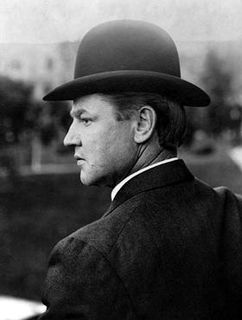A Quote by Charles McPhee
Everybody dreams, but memory for dreams is famously elusive. Even Sigmund Freud, without the benefit of modern technology's electroencephalogram, or EEG, did not know that adult humans dream 90 minutes per night, and that newborns spend eight hours per day dreaming (out of their 16 hours of sleep). REM sleep helps grow the brain!
Related Quotes
Early studies of sleep and dreaming were crucially dependent on waking subjects up during sleep to find out whether they are dreaming or not. Using that strategy, it was found that when the eyes are rapidly moving (REM sleep) people are usually dreaming; when the eyes are not moving, there may be some mentation, but little in the way of visually rich dreams.
When you're in the more deeper stages of sleep - REM sleep, your body is quiet, but your mind is actually very active. So it's a time when your body and your brain is restoring itself. It's repairing any cell damage that happened during the day, it's really repairing, like I said, repairing your body, but also helps with digestion, helps with memory.





























